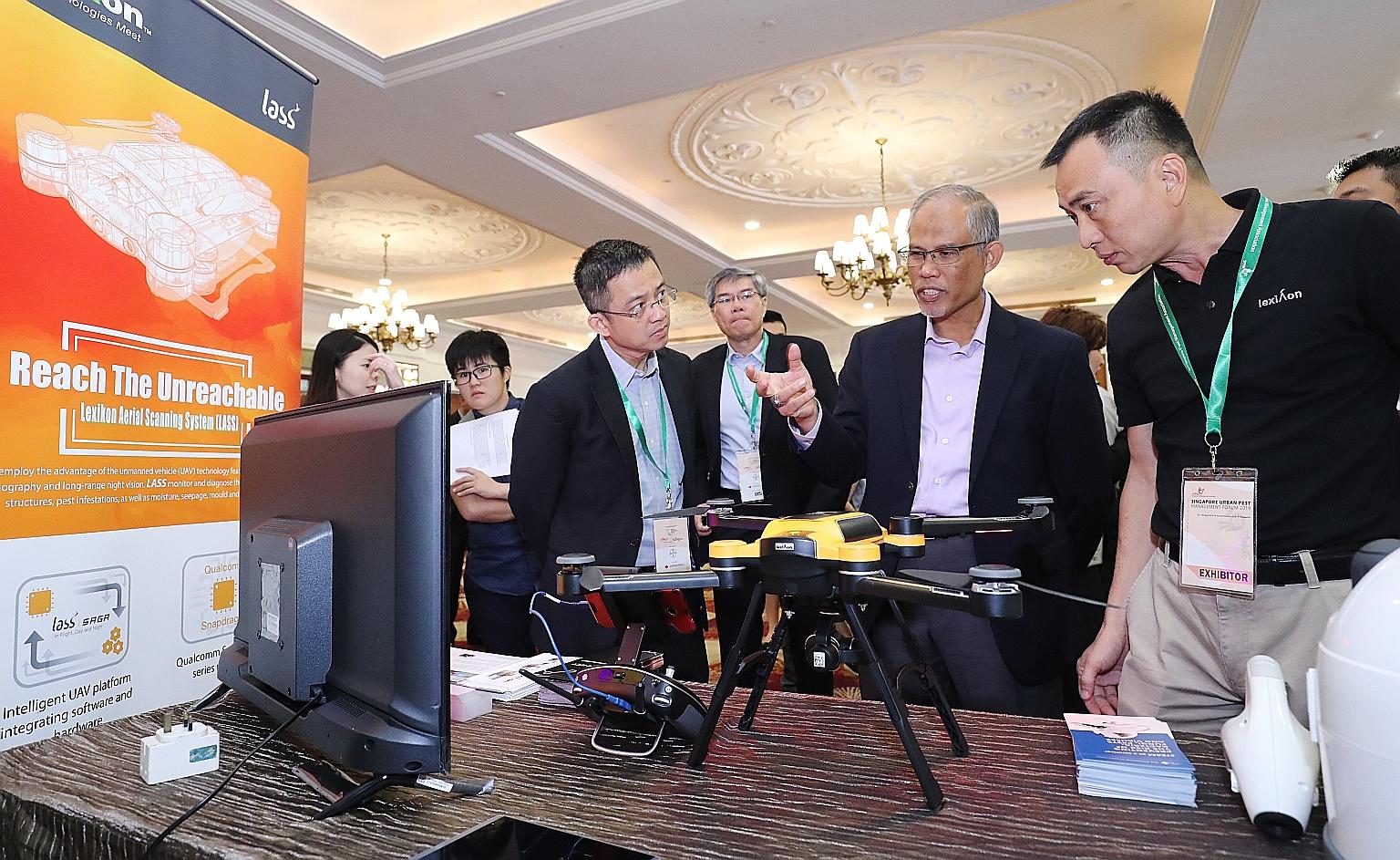Manpower or productivity woes? Pest control firms can turn to tech
Sign up now: Get ST's newsletters delivered to your inbox

Minister for the Environment and Water Resources Masagos Zulkifli checking out a drone that helps to detect mosquito breeding grounds, at the event yesterday. With him are (from left) Mr Tan Meng Dui, chief executive of the National Environment Agency; Mr Dalson Chung, director of industry development and promotion at the agency; and Mr Jason Tan, executive director of Lexikon.
PHOTO: LIANHE ZAOBAO
Drones which locate termites in hard-to-access spots in buildings and sensors that capture the movement of rats are among new high-tech gadgets being used by pest control companies.
Innovative solutions such as these are also helping the pest control industry to overcome problems such as manpower shortage and low productivity.
Innovation and productivity were important themes of Minister for the Environment and Water Resources Masagos Zulkifli's address yesterday at the two-day Singapore Urban Pest Management Forum, organised by Singapore Pest Management Association (SPMA).
He said the sector would be the latest to come under the Environmental Services Industry Transformation Map, which was launched in December 2017 to drive innovation and raise productivity in the cleaning and waste management sectors.
Mr Masagos noted that all three sectors shared similar challenges, and that integration would allow businesses to achieve greater efficiency.
"As our economy and consumption continue to grow, service demands and public expectations over performance standards will increase," said Mr Masagos, who was guest of honour at the forum.
He added: "Climate change may also lead to escalation of pest and vector issues. We may see a higher incidence of vector-borne diseases such as dengue.
"Pest management businesses and employees must therefore innovate continuously, adopt new technologies, and improve efficiency and productivity to meet new challenges."
Many of those attending the forum agreed that technology would play a bigger role in the pest control industry in the future.
Mr Gavin Raj, managing director of pest control service Verminator, said that using technology such as thermal imaging was more effective in identifying infestations than using the naked eye.
SPMA president Andrew Chan said that besides boosting efficiency, technology could also act as a draw for young, tech-savvy talent.
"If you want fresh graduates to go out on the field spraying (pesticides), I think that's totally impossible," he said.
"But if you have new technologies or smart systems, where the data collected can be sent back to the office for them to study, they will be more interested."
Technology is also being used to develop eco-friendly products used in pest management, such as less toxic pesticides, as more consumers become environmentally conscious and demand rises for greener solutions, said Mr Heng Yiwei, managing director of Agro Technic, a supplier of pest management solutions.
"It used to be that the consumer would pay the pest control company a lump sum of money and say, 'get the problem settled'. These days, people will ask about the chemicals used and check online whether they're dangerous. People don't mind paying a little more if it's safer and greener."


